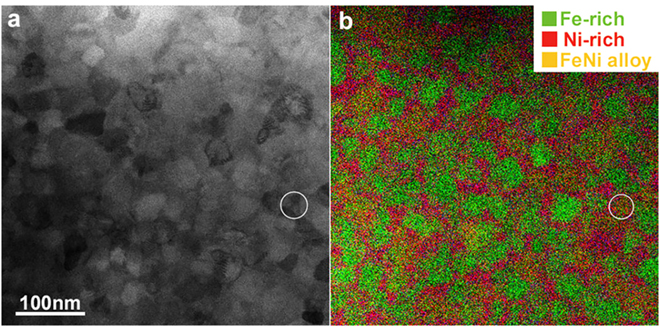High-performance magnets, which are critical for EV motors, typically depend on rare earth elements such as samarium, neodymium and dysprosium. These exotic materials are not only costly, but also present environmental and political challenges.
Researchers from Tohoku University in Japan recently succeeded in producing a completely rare-earth-free high-quality magnet made of iron and nickel. The team, led by Professor Akihiro Makino, describes its work in “Artificially produced rare-earth free cosmic magnet,” published in Nature’s Scientific Reports.
It has long been known that small amounts of Fe-Ni magnets are found in certain meteorites. These natural magnets are produced by a process of extremely slow cooling – about one Kelvin per million years. Until recently, it was considered impossible to produce these structures artificially in a short time.
Makino’s group has succeeded in producing such a magnet by using high atomic diffusivity at low temperatures, reducing the time scale from billions of years to just a couple of days. The paper likens the process to “travelling in a time machine.”
The results of the study offer a solution for the development of next-generation hard magnetic materials, because the alloys are free from rare-earth elements, and the technique is well suited for mass production.
“The realization of hard magnets free of rare-earth metals may help in resolving the global issues of resource exhaustion, which should become critical in the near future,” writes Makino. “The successful synthesis of the chemically ordered L10 FeNi phase is one step closer to the field of materials science for realizing a safe and sustainable society.”
Source: Green Car Congress
Image by Akihiro Makino or Parmanand Sharma (CC BY 4.0)




















































